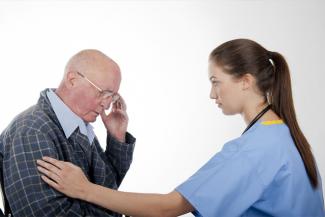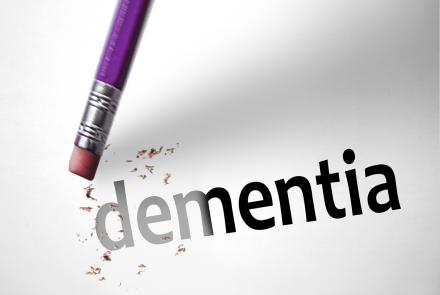
Swapna Kishore, a dementia resource person, talks to Dr. CT Sudhir Kumar on the importance of getting a dementia diagnosis and not treating it as a normal ageing process, how to select the right doctor, how to plan for a doctor consultation, the tests that the doctor may prescribe and how to plan reviews with your doctor.
When someone shows symptoms like memory problems, confusion, unclear speech, inability to plan, or strange behaviour, we may wonder whether this is dementia and what we should do.
A diagnosis is essential to understand the situation
Some people feel that it is pointless to get a diagnosis because they have heard there is no cure that will make things fully normal again. But a proper diagnosis is required for many reasons
- The person’s symptoms may be caused by a medical condition that responds well to treatment. (The person may not have an irreversible condition.) Treatment for the medical condition will be possible after a diagnosis.
- Even if they have an irreversible form of dementia, some persons can benefit from medicines which control symptoms and improve their quality of life. Your loved one may be among those who can benefit. You will need a diagnosis to know this.
- Also, a diagnosis helps families understand the situation and start the process of getting information and planning for care and better support.
So if you suspect dementia or something similar, remember that the earlier you get a diagnosis, the sooner you can start suitable treatment and care.
To make the diagnosis process smoother for families, I ran a series of four interviews on dementia diagnosis with Dr. CT Sudhir Kumar1, a consultant psychiatrist with extensive experience in dementia.
1. Selecting the right doctor
The doctor we consult should have the expertise and experience to examine the person and give a proper diagnosis. In Part 1 of our interview series, Dr. Sudhir Kumar discusses various options while selecting a doctor. In general, a diagnosis of dementia is given by specialists--psychiatrists, neurologists, or geriatricians--preferably those with interest and experience in dementia. But there are other options also. Of course, doctor selection also depends on availability and affordability, and the interview provides pointers to make the decision easier.
The interview explains basic terms like cognitive impairment. It explains that dementia is a broad and general term for many possible combinations of symptoms, and that the symptoms are different from person to person. Many conditions can cause these symptoms; these include Alzheimer’s Disease, Front-Temporal Dementia, Lewy Body Dementia, Vascular Dementia/ post-stroke vascular dementia, etc.
2. Preparing for the doctor visit - Symptoms and Medical History
Early symptoms of dementia tend to be seen as ageing or caused by situations like retirement or bereavement. Families usually seek a diagnosis only after dementia symptoms become very embarrassing socially or very difficult to handle, and often it is a cluster of symptoms. For example, a crisis where Amma was lost for hours, or when Papa complained (wrongly) to relatives and neighbours that the family is starving him. And often, during the doctor visit, the overwhelmed families talk mostly about extreme symptoms but forget other aspects.
For a proper diagnosis, doctors need all relevant data. In Part 2 of the interview series, Dr. Sudhir Kumar discusses how to prepare for the doctor visit, including noting the symptoms and their impact, how and when they started, gathering older medical records, listing current medication, and so on.
When putting together information on the symptoms, look at various areas like memory problems, speech problem, behaviour and personality changes, psychological changes, and other symptoms. Look for examples. Instead of just saying ‘forgetful’, talk about the kind of things the person forgets. Are these recent events like forgetting what was eaten at breakfast or where the person went today? Or are they events from some years ago?
Families should also include behaviour and mood related problems. They should not feel embarrassed about symptoms or assume the symptoms are irrelevant. In one instance, when Papa began making sexual advances to his daughter-in-law, the family was very angry with him, but did not tell the doctor. Later, when they did so, they were relieved to learn that this out-of-character behaviour was related to his fronto-temporal dementia. He had not become a “bad character.”
The doctor will need to know how the symptoms impact daily tasks like bathing, eating, dressing, using the toilet, etc. What sort of help does the person need?
Also, doctors need to know how and when the symptoms started. This affects how they look at possible causes for the problems. In cases of sudden onset, doctors first look for immediate causes (like stroke, infections, acute medical conditions) and try to address these first. The process of diagnosing and managing is different if the symptoms had increased gradually. Read more in Part 2 of the interview series.
3. The actual consultation
What will the doctor look at during the consultation? What sort of questions could be asked and what sort of tests and scans may be ordered? How do these help the diagnosis? Dr. Sudhir Kumar explains these and resolves some common doubts in Part 3 of the interview series.
Tests are usually conducted to check for problems like anaemia, thyroid problems, vitamin deficiencies, infections like Urinary Tract Infection, electrolyte abnormalities, etc. They may point to problems that may affect cognitive functions. It is possible that treating the detected problems will result in improvement. Tests may also be done to identify problems that affect the choice of medicines.
Brain scans show changes in brain. The interview discusses how scans help in diagnosis and the role of the radiologist for analysis. A brain scan report is just one part of the information used to give a diagnosis. The doctor will also look at many other factors.
Some families wrongly assume that online memory tests are enough to diagnose dementia. But a dementia diagnosis depends on many pieces of information, not just on a memory test score. Even when they are conducting a cognitive test, doctors note the reaction of the person and the approach to the task in addition to the answer given. All this helps them make the diagnosis and decide what to do next.
Part 3 of the interview, which covers all the above in detail, also discusses how families can get preliminary advice without taking the person to the doctor.
4. On getting the diagnosis
A “dementia” diagnosis can disorient families. They may not be able to think what to ask. They may forget what the doctor explained when they return home. The last part of the interview series discusses things you can discuss with the doctor after getting a diagnosis.
It is important that you understand and feel comfortable with the diagnosis and the prescribed medicines. If you are unclear about these, you can politely ask the doctor to explain the basis of the diagnosis. Request clarity on the prescribed medicines, such as the purpose, dosage, possible side-effects, what to watch out for, and when the doctor needs to next review the prescription.
Of course, if dissatisfied with the explanations, or if uncomfortable with how the doctor responds to your queries, please seek a second opinion. For a long-term, progressive disorder like dementia, feeling comfortable with your doctor is necessary.
More information will also be needed to plan ahead. Examples of things you may want to know are: when to schedule the next consultation, what immediate actions are needed for care, what to expect in the future, possible sources of information and support. We also discuss issues around accepting the diagnosis and having realistic expectations from medicines. Many families expect the medicines to have immediate improvements, but medicines may take some time to show impact.
Dementia goes on for years. In practice, many families hesitate to visit doctors or find it difficult to keep consulting doctors for dementia and other medical problems for various reasons.
One reason is that families assume that any deterioration in someone with dementia must be because of their dementia and that no improvement is possible. But the reason for decline need not be dementia. People with dementia are more likely to experience deterioration in cognitive functions and behaviour when they have problems like infection, pain, constipation, insufficient fluids etc. These problems can be treated. Families can consult a GP for the decline, but must ensure that this GP knows about the person’s dementia.
Review trips are needed to adjust the dementia-related treatment based on the changed state of the person. It may become difficult to take the person to a doctor, and so, along with the above topics, Part 4 of the interview discusses how to stay in touch with doctors in such cases.
Wrapping up
In conclusion, I would like to repeat my caution about the dangers of assuming dementia without consulting a doctor. In one case, a daughter assumed her father had dementia based on some news articles and without visiting a doctor. Fortunately, she later agreed to take him to a doctor and they found a severe vitamin deficiency and some other problems, all treatable. Had she gone earlier, the father’s treatment would have started earlier.
Hopefully, this set of interviews will enable families to understand and handle the diagnosis process better so that they can benefit more from it.
Lastly, please remember that a person with dementia needs an appropriate environment and personalized care. Understanding what care involves and any available support is a vast topic by itself, and you can check out various discussions on the website dementiacarenotes.in for this.
References:
The four interviews of the “The dementia diagnosis process” series mentioned above are:
The dementia diagnosis process, Part 1: Getting started and selecting a doctor
The dementia diagnosis process, Part 2: Preparing for the doctor consultation
The dementia diagnosis process, Part 3: Meeting the doctor and getting a diagnosis
The dementia diagnosis process, Part 4: Understanding the diagnosis and what comes next
1. Dr. Sudhir Kumar is honorary consultant with ARDSI and was instrumental in bringing out the ARDSI Memory Clinic guidelines. He is actively involved with the Dementia Friendly Community- India initiative. Read his article on Dementia Friendly Communities.
Swapna Kishore, a resource person for dementia, has created many online resources for dementia caregivers in India. These include the website, Dementia Care Notes, and its Hindi version, Dementia Hindi.








